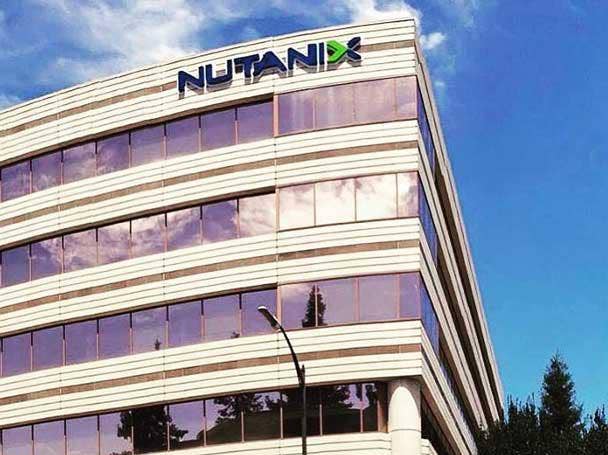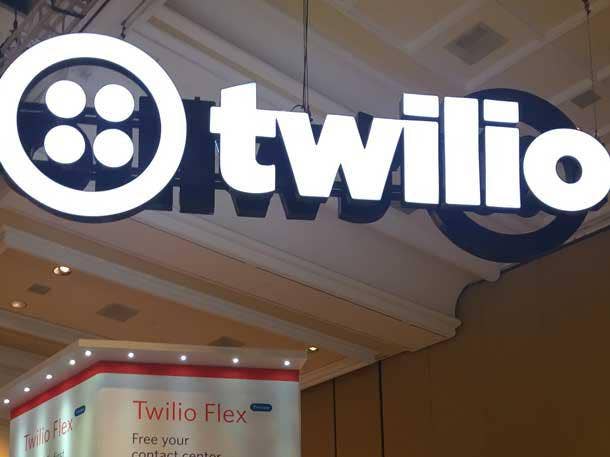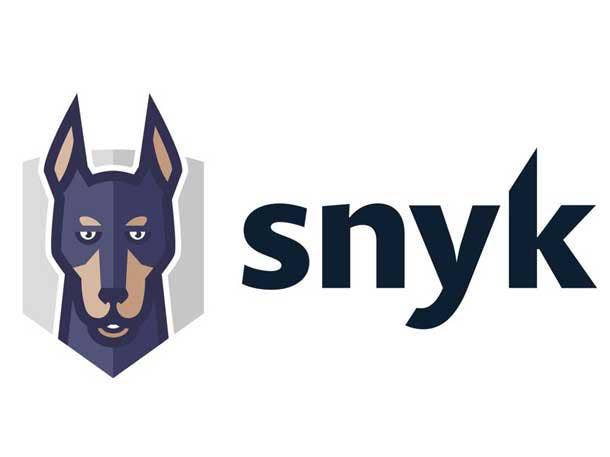Tech Layoffs In 2022: 23 Companies Slashing Their Workforce
A review of the layoffs that have hit some major tech companies and startups alike over the past few months — from Oracle and Intel to Avaya, Meta and Cybereason.

Layoffs In A Time Of Tight Tech Talent
Ever since the recovery from the COVID-19 pandemic started, the U.S. has been in an increasingly tight labor market with the official U.S. unemployment rate in October at 3.7 percent. But with rising interest rates and cooling spending amid rising prices, companies have been starting to pause hiring and even cut their payrolls.
The second half of 2022 has been characterized by a series of tech layoffs as firms from small operations to multinational giants have laid off a significant number of employees. In fact, layoff tracking website Layoffs.fyi reports that more than 100,000 tech workers have been fired in 2022. And that number is likely to grow.
[Related: Economic Outlook For 2023: 10 Tech Execs Weigh In]
Douglas Holtz-Eakin, the former director of the U.S. Congressional Budget Office, in October told a crowd at CRN parent The Channel Company’s XChange Best of Breed 2022 conference that he expects a modest recession to hit during the middle of 2023 due to the Federal Reserve increasing rates, continuing inflation, and uncertainty ahead with China as well as Russia’s war in Ukraine.
The impact was first felt more in the cybersecurity sector than tech as a whole, with a host of startups and some mature cybersecurity companies undergoing layoffs in the last few months. But those initial layoffs have spread to other tech firms as soon as soon as the fall season set in.
Mark Hatfield, a founder and general partner of Ten Eleven Ventures, in May told CRN that cybersecurity remains a solid long-term bet for investors, but acknowledged that cybersecurity startup valuations had reached their peak and have been falling.
Meanwhile, a new report from Progress Partners, a Boston-based investment bank, said that the amount of venture funds invested in cybersecurity companies declined in the third quarter compared with the same period last year, to $3.3 billion from $5.6 billion, or by 41 percent.
The pullback comes amid uncertain economic times, with market gyrations, high inflation and predictions of a coming recession dominating recent headlines.
Progress Partners’ VC outlook generally confirms what other analysts are seeing: a cooling-off of early stage cybersecurity investments in dollars but an increase in deals.
CRN looked at the layoff activities of 23 IT tech companies in the second half of 2022. The focus of this look at the industry is on companies focused on building the hardware, software, tools, and services that power the IT industry or are used by IT professionals.
To review a sampling of the tech companies laying off workers in recent months, click through the slideshow.
Jay Fitzgerald, Wade Millward, Gina Narcisi, Mark Haranas, David Harris, O’Ryan Johnson, and C.J. Fairfield all contributed to this article.

Lacework: Lays Off About 200 Employees
Lacework in May laid off an estimated 20 percent of its workforce. The layoff was a surprise given that the San Jose, Calif.-based cloud security firm founded in 2015, had raised $1.3 billion in new funding only six months prior, making it one of the world’s hottest cybersecurity companies. The Series D funding round was led by Sutter Hill Ventures, Altimeter Capital, D1 Capital Partners, and Tiger Global Management.
Lacework co-CEOs David Hatfield and Jay Parikh said in a company blog post that the “very difficult decision” to reduce the company’s headcount was the result of a “seismic shift” in both the public and private markets.
“While we do not have control of the environment around us, we do have a responsibility to control how we operate our business and make changes as needed to best position the company for continued and long-term success. … We have adjusted our plan to increase our cash runway through to profitability and significantly strengthened our balance sheet so we can be more opportunistic around investment opportunities and weather uncertainty in the macro environment.”
The number of employees who lost jobs at Lacework is thought to be around 200.

Cybereason: Lays Off 10 Percent Of Its Workforce
Only a week after Lacework unveiled its layoffs, another cash-rich security startup confirmed it was also slashing its payroll to save cash. Endpoint-security firm Cybereason, which is based in Tel Aviv, Israel and Boston, said in June it was laying off 10 percent of its workforce, or more than 100 employees. The company in October again laid off workers, trimming its workforce by 17 percent.
“This was an incredibly painful decision as it impacts colleagues who have supported our mission and played a part in making us a market leader,” wrote CEO Lior Div in a blog post at the time.
The early June move came only four months after Cybereason had filed for an IPO and less than a year after it raised an additional $325 million in funding, of which $275 million was raised via a Series F round led by Liberty Strategic Capital, a VC firm founded by former U.S. Treasury Secretary Steven Mnuchin.
The company in a prepared statement blamed the layoffs on the need for improved financial discipline.
“As the bullish tech market conditions have turned and the tech IPO market has essentially closed, companies like us must now exercise more strict financial discipline and prioritize profitably over top line growth. … Our market traction remains strong as we continue to build a company that matters with long-term objectives in mind and plans for a tremendous outcome when the markets – and we – are ready,” the company wrote.

Deep Instinct: Lays Off 10 Percent Of Workforce
Deep Instinct in early June became the third major cybersecurity company in two weeks to see a cut in its workforce when it was reported by several news outlets including Crunchbase and CNBC that the New York-based company laid off about 10 percent of its workforce.
Deep Instinct Chairman Lane Bess earlier told CNBC that the company had to get more efficient with its sales operation.
“We took a look and said, ‘Where are we being most effective in the enterprise?‘” Bess said. “Are we doing well in the low end of the market, where we have inside salespeople? No. Do we have channel partners that can get to that low end of the market? Yes.’”
Over the years, Deep Instinct, which uses artificial intelligence to detect and prevent malware, has raised over $259 million in funding from investors including BlackRock and Millennium.

OneTrust: Slashing 25 Percent Of Its Workforce
Cybersecurity software developer OneTrust in June become the fourth high-profile security startup in just a few weeks to announce layoffs. OneTrust, founded in Atlanta about six years ago, reorganized the company, a move that resulted in a reduction of its headcount by about 950 people, or about 25 percent of the company.
OneTrust CEO Kabir Barday Thursday wrote in a blog post targeting the company’s employees that the headcount reduction comes as investors shift towards more of a balance between growth and profitability.
“I know this news is surprising, especially as you heard last month that the business is on track with record quarters and increasing customer demand,” Barday wrote. “However, capital markets sentiment shifted to a more balanced approach between growth and profitability, and at this time, we have decided the best course of action is to reorganize to position OneTrust for continued long-term success.”
OneTrust’s layoffs come after the company in April 2021 unveiled a huge $210 million round led by SoftBank’s Vision Fund 2, with participation from Franklin Templeton. The company has raised a grand total of $920 million.

Automox: Lays Off 75 Employees
June also saw cybersecurity firm Automox unveil its own layoff. Automox just last year raised $110 million in Series C funding, led by Insight Partners, along with funds managed by Blackstone and existing investors Koch Disruptive Technologies and TechOperators.
In a post on LinkedIn, Boulder, Colo.-based Automox confirmed it was reducing its overall workforce, citing economic uncertainties as the driver.
“[Due] to the broader economic climate, we parted ways with a number of our very talented people. While Automox continues to be a growing business in a strong financial position, we are not immune to the challenges of the macroeconomic environment,” the company said.
Automox, which was founded in 2015, did not provide a specific layoff number, but Layoffs Tracker reported that Automox reduced its workforce by about 18 percent, or 75 employees. Layoffs Tracker also reported Automox previously cut its workforce by about 10 percent in April.

Liongard: Lays Off Undisclosed Number Of Employees
IT automation technology provider for MSPs Liongard in mid-June due implemented the laying off of an undisclosed number of employees to the difficulty of navigating “the market for technology companies” in recent months, according to Joe Alapat, founder and CEO of the Houston-based company.
“As we have all seen in the press and social media, the market for technology companies has been difficult to navigate in recent months. We listened and learned from the market and investors and are evolving our plan. While Liongard’s market, product and growth remain strong, we are prioritizing a path to profitability,” Alapat wrote in a June LinkedIn. “To implement this new plan, we must make organizational changes that require us to part ways with a portion of our teammates who have been with us on our journey. This has been the most difficult decision I’ve had to make at Liongard, and I know it will be challenging for our teammates.”
Alapat asked the company’s MSP community and tech partners to reach out and support the employees who were let go with new job opportunities.
“We know these changes will result in a more resilient company. Please know that the vision and mission at Liongard stay the same; our commitment to our Core Values remains the same. I am beyond grateful to each one of you who are with us on this journey,” he wrote.

IronNet: Lays Off 17 Percent Of Workers
Cybersecurity technology developer IronNet late June said in a regulatory filing that the company was laying off about 55 of its employees, or about 17 percent of its total headcount. McLean, Va.-based IronNet, which was founded in 2014, did not disclose in its filing with the U.S. Securities and Exchange Commission the exact reason for the layoffs.
“The workforce reduction is part of a broader plan by the Company to streamline its operations for higher efficiency, to reduce overall expenses and preserve cash, and to set the Company up for rationalized growth going forward,” the company wrote.
An IronNet spokesperson replied via email to a CRN request for more information by noting that the company in its first fiscal quarter 2023 financial conference call that IronNet planned to evaluate all expenses to accelerate the timeframe to achieve a cash flow neutral financial position into next year. In its SEC filing, the company also said IronNet also sees no change to its outlook or customer pipeline as it looks to increase efficiency and set the company up for rationalized growth going forward.
News of the layoffs come less than two weeks after IronNet released its first fiscal quarter 2023 financials in which it reported revenue for the quarter of $6.7 million, up slightly year-over-year from last year’s $6.4 million. It also reported a GAAP net loss in the quarter of $33.2 million, up significantly from the net loss it reported last year of $15.5 million. On a non-GAAP basis, the company reported a net loss of $21.4 million, up from last year’s net loss of $14.9 million.

Arete IR: Cuts Up To 90 Positions
Arete IR, a Boca Raton, Florida-based cyber incident response firm known for its handling of ransomware cases on behalf of clients, in July confirmed it has laid off an unspecified number of employees, blaming “current economic conditions” for the action.
In a statement to CRN, Arete IR confirmed payroll reductions but said it was “not publicly sharing specific numbers.” The company declined to confirm an earlier report from the website Layoffs Tracker that the company had laid off about 90 people, or roughly 25 percent of its workforce.
The statement added, in apparent reference to Layoffs Tracker’s report, that “reported numbers are incorrect, overstating the total number of impacted employees and impacted workers as a percentage of our entire workforce.”
Arete IR said it had little choice but to cut jobs.
“Arete made the difficult decision to reduce our staff in response to current economic conditions,” the firm said in its statement. “The company evaluated every option to avoid having to reduce staff but ultimately concluded that this step was necessary for the continued growth of the business.”
Arete’s statement concluded: “We have taken steps to ensure that this action does not affect our ability to provide our clients with the highest quality incident response and managed security services.”

Nutanix: Cuts 270 Jobs After Supply Chain Warning
Nutanix in August said it planned to cut 270 employees as a way to drive towards profitable growth, the company wrote in an U.S. Securities and Exchange Commission filing, following warnings in May of supply chain disruptions and higher-than-expected turnover.
The San Jose, Calif.-based hyperconverged infrastructure software and rising hybrid cloud player said the layoffs represent 4 percent of its global workforce, and were expected to be completed by late October.
“As hard as it is to make decisions that impact employees, we believe this will enable Nutanix to be more efficient and flexible going forward as we navigate a challenging macroeconomic environment,” the company said in a statement from a spokesperson. “We are committed to treating our impacted employees with respect and supporting them through the transition.”
Nutanix in May reported solid third-quarter financials, with a 17-percent year-over-year growth in revenue to $403.0, but that number came with a warning that increased hardware supply chain delays resulted in an increasing percentage of its orders having start dates in future quarters, or in some cases being delayed, pending availability of hardware, which impacted both its billings and revenue upside in later quarters.

Malwarebytes: Lays Off 125 Employees
Citing the need for a “strategic reorganization” that includes a renewed emphasis on its channel business, Marcin Kleczynski, CEO and founder of Santa Clara, Calif.-based Malwarebytes, in August confirmed his antivirus company laid off about 125 workers, or about 14 percent of its global workforce, across all departments.
In a statement issued by the company, Kleczynski insisted that Malwarebytes is in good financial shape and that the staff reductions were the result of its own long-term planning moves, not the result of outside market pressures.
“Unlike most tech companies, Malwarebytes generates positive cash flow to grow our business, so this was more a strategic reorganization than a reaction to market conditions,” Kleczynski said in his statement.
“In recent months, Malwarebytes has increasingly refocused our business on the small-medium business (SMB) and mid-market customer segments in alignment with our mission to protect the underserved,” he added. “We are shifting our go-to-market strategy to prioritize growing in these markets, including expanding our channel partnerships and accelerating our momentum with managed service providers (MSPs).”
Malwarebytes was founded in 2008, and has raised about $80 million in funding over the years.

Avaya: Makes Unspecified Cuts To Workforce
Unified communications powerhouse Avaya in September initiated cost-cutting measures that includes an unspecified number of layoffs, the company told CRN.
“As previously stated, lowering our costs, including through a reduction in our workforce, is necessary to position Avaya as a more agile and innovative organization and to align Avaya’s cost structure with our contractual, recurring revenue business model,” said Avaya CEO Alan Masarek in an emailed statement about the layoffs.
Masarek, who joined Avaya in August, said that the firm will “minimize the impact to customers with respect to sales and support and remain committed to our long-range innovation and product development roadmaps.”
“We are committed to treating impacted employees with utmost dignity and respect and seamlessly providing our customers with outstanding communications solutions and support,” Masarek said.
Avaya in July said it would begin “significant” cost-cutting measures to the tune of $225 million to $250 million during its final fiscal quarter of the year.

Twilio: Lays Off 800 To 900 Employees
Twilio, the San Francisco-based developer of communications tools, said in mid-September that it plans to lay off somewhere between 800 to 900 employees from its total workforce of 7,860 as of the start of 2022.
The cuts will impact Twilio teams in research and development, go-to-market and the company’s administrative and general departments.
In a regulatory filing, Twilio said it expects that it will incur approximately $70 million to $90 million in charges in connection with the restructuring plan, “consisting of cash expenditures for employee transition, notice period and severance payments, employee benefits, and related facilitation costs as well as non-cash expenditures related to vesting of share-based awards.”
Twilio has nearly doubled its employee headcount over the past several years, while also acquiring several companies, including messaging services specialist Zipwhip and data security company Ionic Security.
Twilio’s CEO Jeff Lawson said at the time that he takes responsibility for choosing to grow the company’s team faster than planned. “And now, I also own the decision to become more focused, resulting in this layoff,” he said. “Today’s layoffs are about aligning our investments more squarely with our priorities, as well as running our company more efficiently overall.”

Microsoft: Lays Off 1,000 Employees
Microsoft in mid-October laid off less than 1,000 employees in various departments and worldwide just days before the first quarterly earnings report of its 2023 fiscal year, according to multiple media reports.
Microsoft cut jobs in its Xbox gaming division, the “mission expansion” cloud government division, the “strategic missions and technology” team and Studio Alpha, a war-gaming simulation division, according to Business Insider.
When asked about reports of layoffs, a Microsoft spokesperson said, “Like all companies, we evaluate our business priorities on a regular basis, and make structural adjustments accordingly. We will continue to invest in our business and hire in key growth areas in the year ahead.”
The layoffs are due in part to weaker Windows licenses sales for PCs, according to CNBC.
The company has more than 200,000 employees worldwide, according to Microsoft.
In July, the vendor let a “small number of employees” go Tuesday due to a “strategic alignment,” but that the tech giant still planned to “grow headcount in the year ahead.”

Oracle: Lays Off 201 Employees In California
Oracle laid off more than 200 of its workers in California in October, months after reports surfaced that the tech giant was considering “thousands” of job cuts on the heels of its $28 billion Cerner acquisition.
The Austin, Texas company cut 201 jobs in total on Oct. 3 from its Redwood City, Calif. office, according to its Worker Adjustment and Retraining Notification (WARN) filed in California. The job cuts took effect Oct. 3 and was received by the California Employment Development Department Sept. 30, according to the WARN.
In a letter to the state obtained by CRN, Oracle said the layoffs would be permanent and said that its Redwood Shores campus would not be closing as a result of the job cuts. Oracle formerly housed its headquarters in Redwood City, but moved it to Austin at the end of 2020.
Among the jobs cut in this round, according to the Aug. 4 letter to the state from Anje Dodson, senior vice president of human resources at Oracle: data scientists, application developers, marketing specialists and software developers.
As of this past May, Oracle employed approximately 143,000 full-time employees, of which about 48,000 are based in the U.S. and the rest internationally, according to a regulatory filing.

F5: Laying Off About 100 Employees
Application security and delivery technology provider F5 late October started laying off about 100 employees, or about 1 percent of its global workforce of about 6,900 employees.
In a statement emailed to CRN, Seattle, Wash.-based F5 wrote, “We are continuously evaluating how to focus our resources to best meet the needs of our customers, while also being disciplined about our investment priorities. Given the current macroeconomic environment, last month we announced changes internally that resulted in the elimination of a number of positions across the company. The impact is fewer than 100 roles, or approximately 1% of our global workforce. We continue to hire in targeted areas and remain committed to our long-term revenue and earnings growth strategy.”
The F5 layoffs come despite a global cybersecurity talent shortage that Sam Bisbee, F5’s chief security officer, wrote about in an October 20 blogpost. Bisbee wrote that the number of people entering the security workforce is growing, but that businesses themselves are responsible for not matching employees to security positions.
“We have a security skills and leadership shortage, not a broader security talent shortage. This is slowing the broad security talent market correction that we must see for increased resiliency across all businesses, not just in the traditional silos of 1%’er security programs,” Bisbee wrote.

Collibra: Implementing Employee Cutbacks
Big data software developer Collibra late October laid off an undisclosed number of employees over the last week, according to LinkedIn postings and the LayoffsTracker website.
LinkedIn postings in late October indicated that Collibra implemented a global workforce reduction that included sales and marketing personnel, according to postings from sales area vice presidents, business development representatives, a partner marketing specialist, and a social media program manager.
Altogether the company laid off 100 employees, according to Layoffs Tracker. Collibra itself has made no announcements and did not responded to a CRN request for comment.
Collibra, founded in 2008, has headquarters in New York and Brussels, Belgium. The company develops a number of big data software products all under “The Data Intelligence Cloud” name. Specific products include the company’s flagship data catalog and data governance software along with tools for managing data quality and observability, data privacy and data lineage.
Collibra raised $250 million in a Series G round of financing in November 2021 that boosted the company’s valuation to $5.25 billion.

Snyk: Lays Off 198 Workers
Boston-based cybersecurity startup Snyk in late October unveiled a second round of layoffs this year, making it the latest in a string of security vendors to shed employees.
Snyk CEO Peter McKay, in a blog post published Monday, told its staff that the company is restructuring and reducing its global workforce by 198 employees, or about 14 percent of its total workforce.
McKay in the blog told his fellow “Snykers,” as Snyk employees are known, that the layoffs, which follow an earlier round of layoffs in July, are the result of “significant market shifts” happening despite the company’s continued growth. He also wrote that the company is still on a path towards growth.
“In June, I shared that we needed to adapt to an evolved mindset balancing continued top line growth with profitability and committed to becoming free cash flow positive in 2024. Our business continues to grow aggressively, more than doubling in size each year with currently over 2,300 customers, but we now must operate even more efficiently in order for Snyk to effectively withstand the continued headwinds facing the global economy,” he wrote.
Snyk had raised $849.5 million in total funding from investors that included Sands Capital and Tiger Global Management and had a valuation of $8.6 billion as of January 2022, according to PitchBook.

Twitter: Laying Off 50 Percent Of Employees
Social media platform provider Twitter laid off about 50 percent of its entire employee base, according to a tweet from Yoel Roth, Twitter’s former head of safety and integrity who resigned not long after his tweet. It could have been worse, given that Elon Musk, who last month acquired Twitter for $44 billion, told perspective investors in that deal that he planned to cut about 75 percent of the company’s employees, according to the Washington Post.
Twitter had no choice but to cut its workforce given that the company is losing over $4 million per day, Musk last week wrote in a tweet. He also said that Twitter’s employees were offered three months of severance, “which is 50 percent more than legally required.”
The total number of layoffs is subject to change. Twitter is actually rehiring several employees for critical positions who should not have been laid off, the company said.

Meta: Laying Off 11,000 People
Facebook parent Meta in November said it plans to lay off over 11,000 employees, or about 13 percent of its worldwide workforce, as it faces an economic downturn. The layoffs are the first mass layoffs in the company’s history, and come after the company’s share prices fell over 70 percent in 2022.
In a letter to employees and released by the Menlo Park, Calif.-based company, Meta CEO Mark Zuckerberg wrote, “Today I’m sharing some of the most difficult changes we’ve made in Meta’s history. I’ve decided to reduce the size of our team by about 13% and let more than 11,000 of our talented employees go. We are also taking a number of additional steps to become a leaner and more efficient company by cutting discretionary spending and extending our hiring freeze through Q1.”
Zuckerberg wrote that he is taking accountability for the decision. “I know this is tough for everyone, and I’m especially sorry to those impacted,” he wrote.

SADA: Laying Off 11 Percent Of Workforce
Google Cloud channel partner SADA is laying off 11 percent of its 950-employee workforce. The layoffs, which the company has never done before, come after the Los Angeles-based solution provider hired so many people in the last 12 months that its headcount after the layoffs is still likely to be up 150 percent compared to 12 months ago.
SADA CEO Tony Safoian, in announcing the layoffs in a November LinkedIn post, took responsibility for the impact they will have on employees. He wrote in his post that SADA had been “overly optimistic” in 2022 in its hiring. “We were simply overly optimistic relative to what the reality of [what the second half of 2022] brought forth,” he wrote.
Safoian also encouraged companies, including partners and customers, looking for talented people, to look to SADA’s departing employees for a wide range of potential skillsets.

Salesforce: Laying Off Hundreds
Salesforce plans to lay off hundreds of workers by the Thanksgiving holiday as technology vendors feel the slowing economy. The start of the layoffs is unclear but should happen before Thanksgiving, according to Protocol which said it could involve up to 2,500 employees. Axios, however, put the number at hundreds.
In a statement to CRN, Salesforce attributed the layoffs to sales performance. “Our sales performance process drives accountability. Unfortunately, that can lead to some leaving the business, and we support them through their transition,” the company said.
Salesforce has over 70,000 employees. CNBC reported that Salesforce let fewer than 1,000 employees go Monday due to lighter demand for the company’s products, which include Slack, Tableau and MuleSoft.
Salesforce in October also cut its contracts with about 90 temporary recruiting contractors because of a hiring freeze.

RingCentral: Cutting 10 Percent Of Workforce
Unified communications-as-a-service giant RingCentral in November said it’s cutting its workforce by 10 percent in light of what the company is calling “an increasingly difficult macro environment.” The announced the cuts just ahead of its Q3 2022 earnings conference call on November 10.
“Throughout the year, we have taken steps to expand our operating margins and drive efficiencies throughout our business. While we recently made the extremely difficult decision to further rationalize our workforce, we believe this will allow us to be more agile and better align our course with our strategic priorities in the current macro environment,” said RingCentral Founder and CEO Vlad Shmunis during the company’s earnings call with investors.
The Belmont, California-based company said the restructuring costs are expected to total approximately $10 million to $15 million and will come primarily from severance payments, employee benefits and related costs. RingCentral said it expects to incur these charges in Q4 2022 and into the first quarter of 2023.
The company expects the reduction in force to be “substantially” complete by the first quarter of 2023.
RingCentral in late 2021 said that it had about 3,915 full-time, part-time and temporary employees, of which 2,489 were U.S. employees. The company in September laid off 50 employees from its headquarters in the San Francisco Bay Area.

Intel: Planning To Lay Off Thousands
2022 has not seen the last of tech layoffs.
Reports from Bloomberg and others in October said that Intel was planning to lay off thousands of its employees as the company deals with a big downturn in the PC market, with the timing of the start of the layoffs likely to be around the company’s third fiscal quarter 2022 financial report at the end of that month.
Intel CEO Pat Gelsinger in October reportedly told employees via a video conference to expect “hard decisions” about layoffs.
As of publication date, Intel has not specified the expected number of employees to be laid off.
The big layoffs at Intel comes as the PC market appears headed for a sustained slowdown. Research firm IDC in October reported that third-quarter 2022 shipments of traditional PCs, which it defined as including desktop PCs, notebooks and workstations but not tablet PCs, detachable tablet PCs or servers, fell 15 percent compared with the third quarter of 2021 to a total of 74.3 million units.